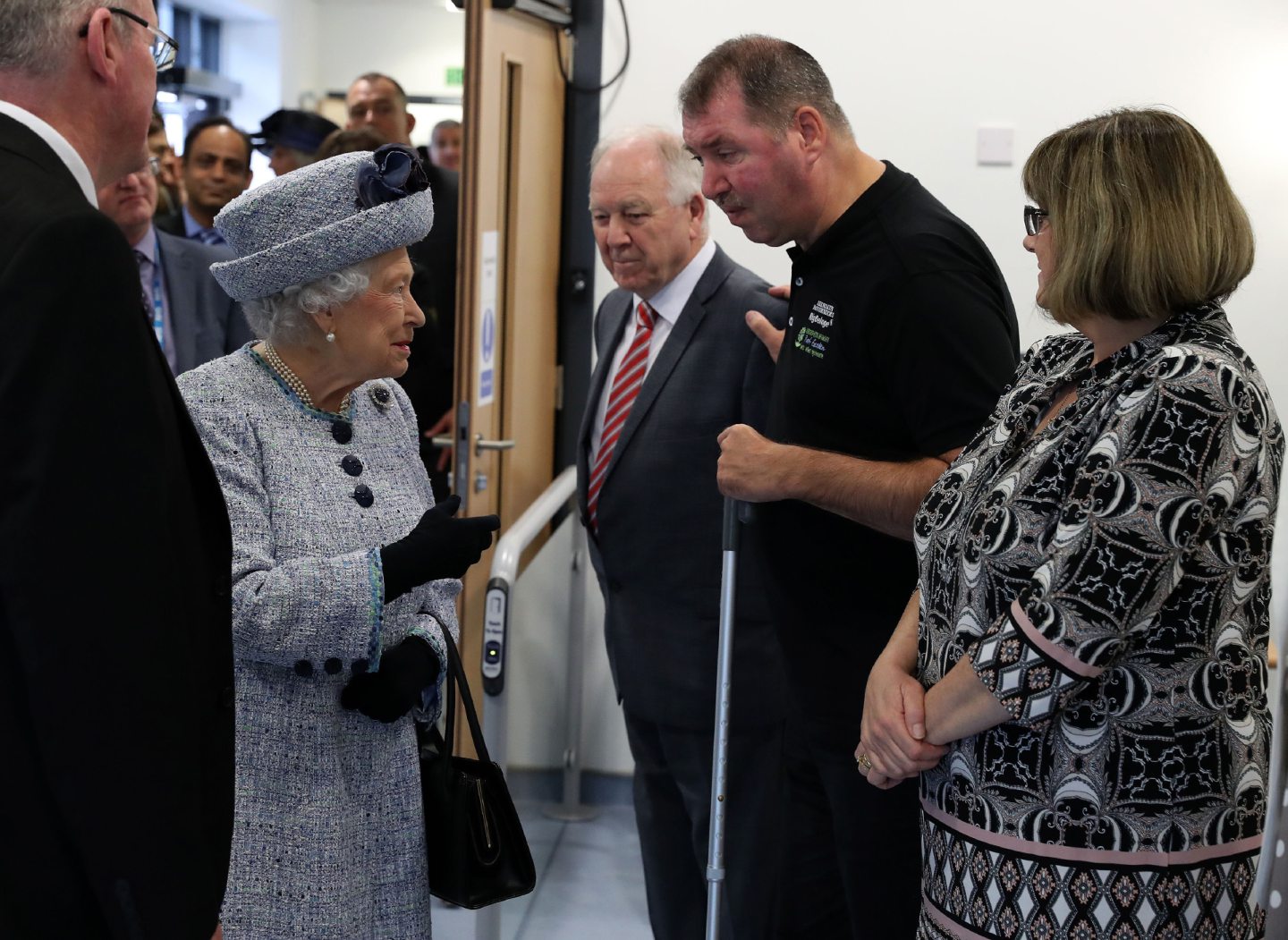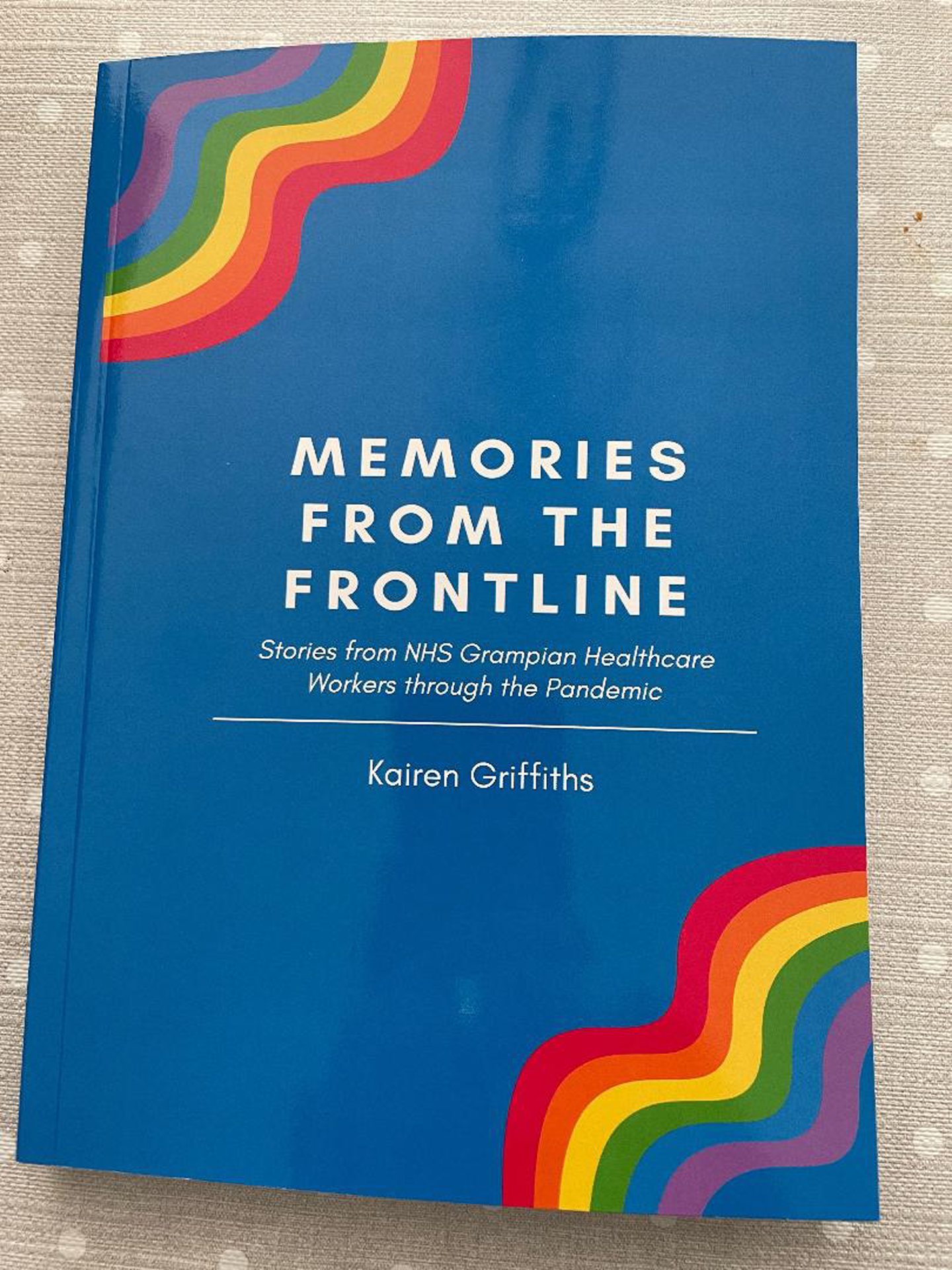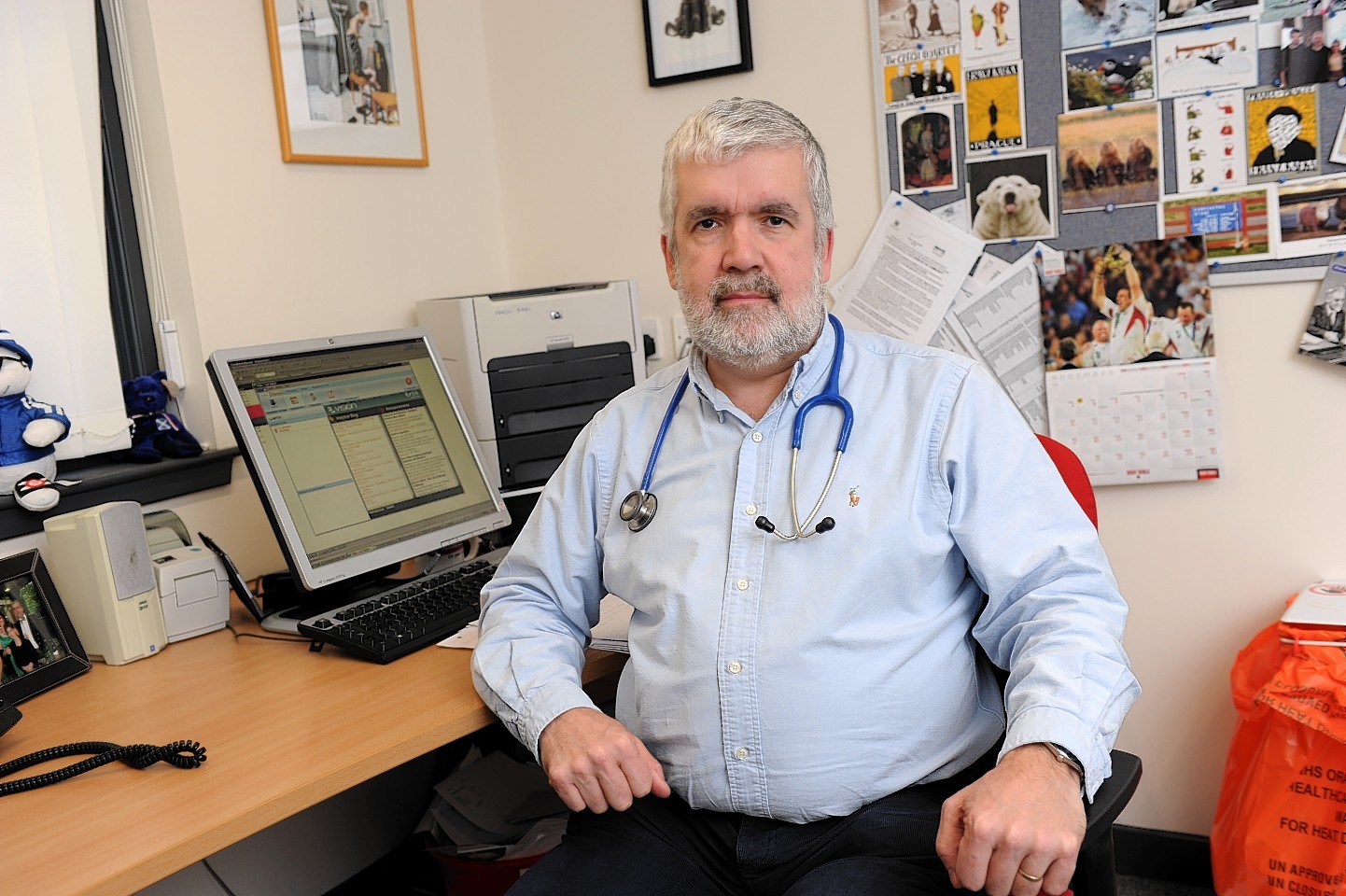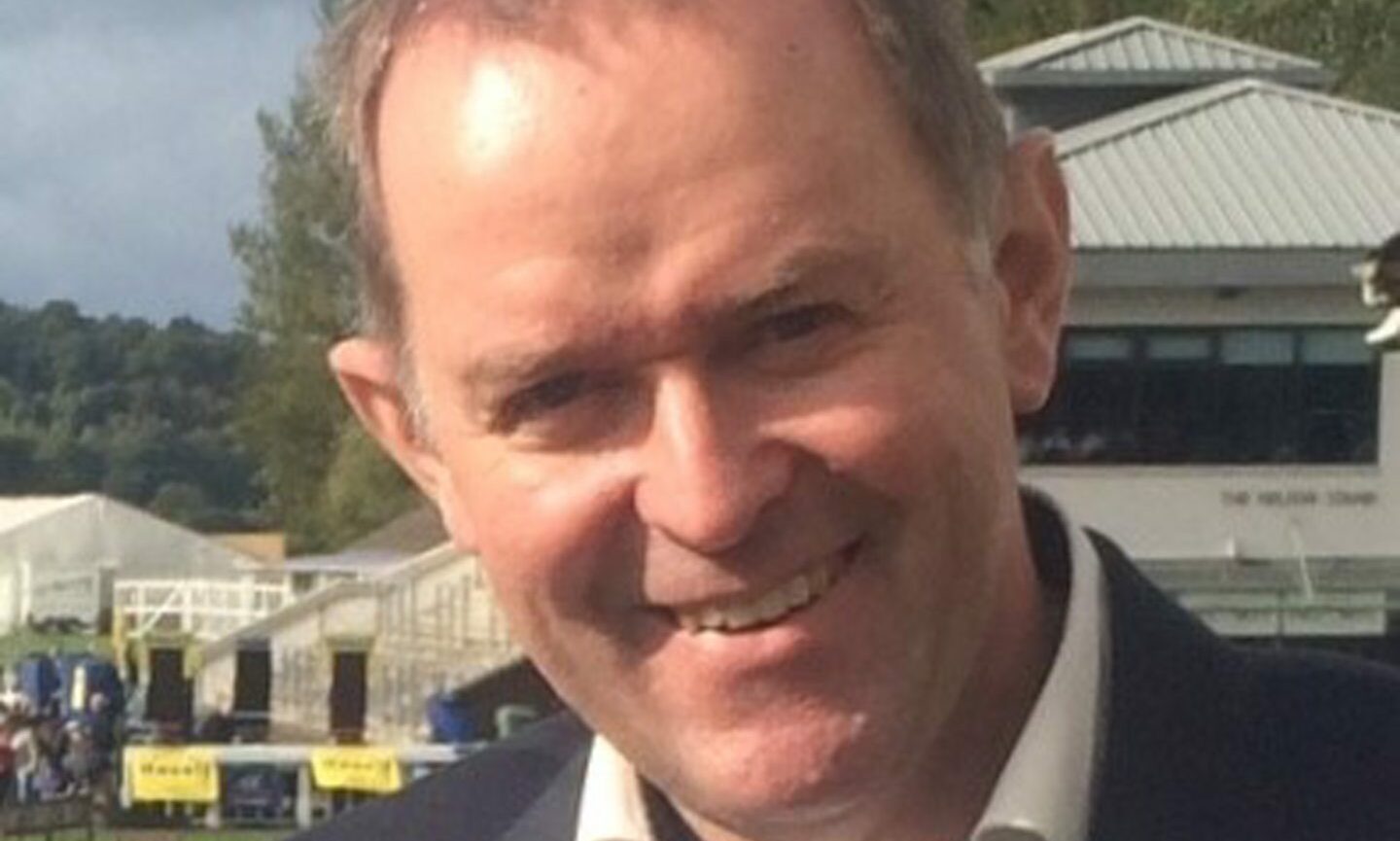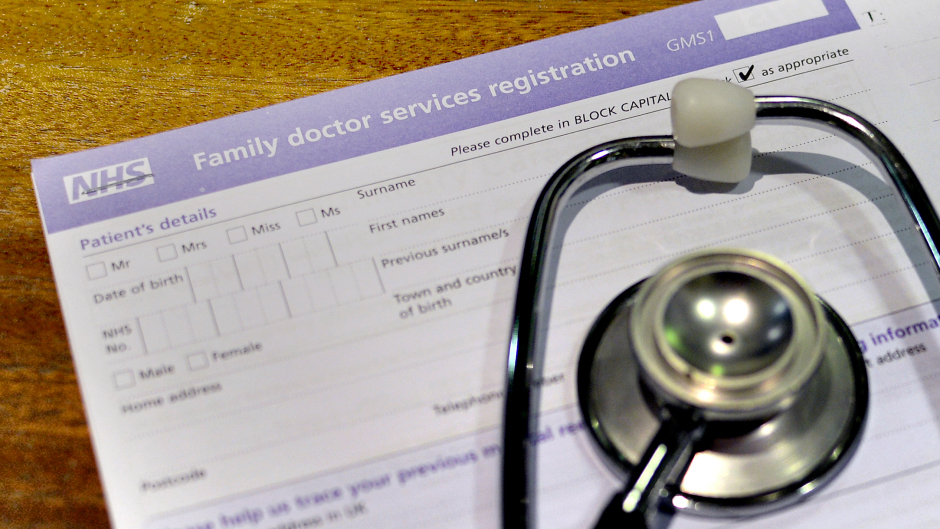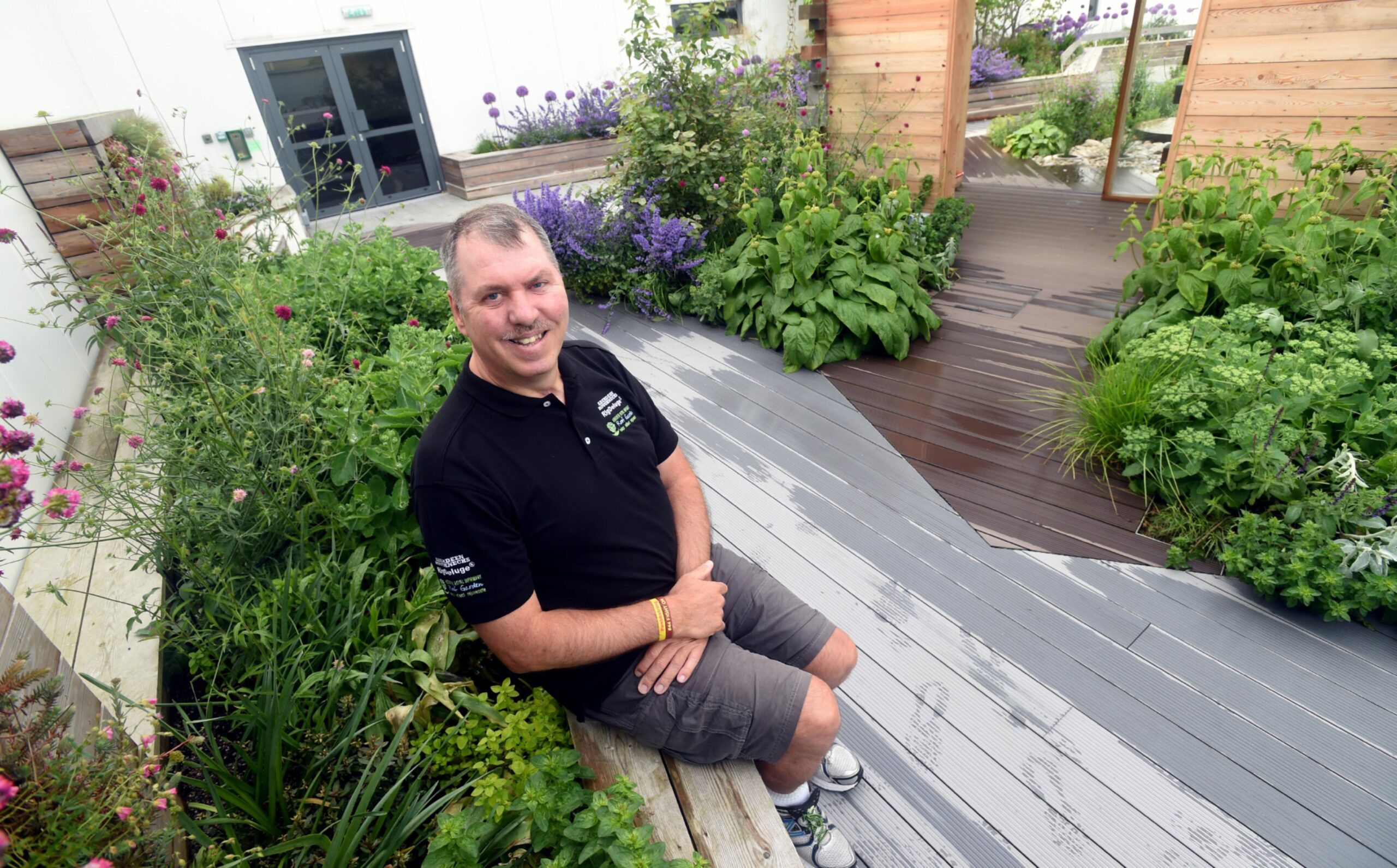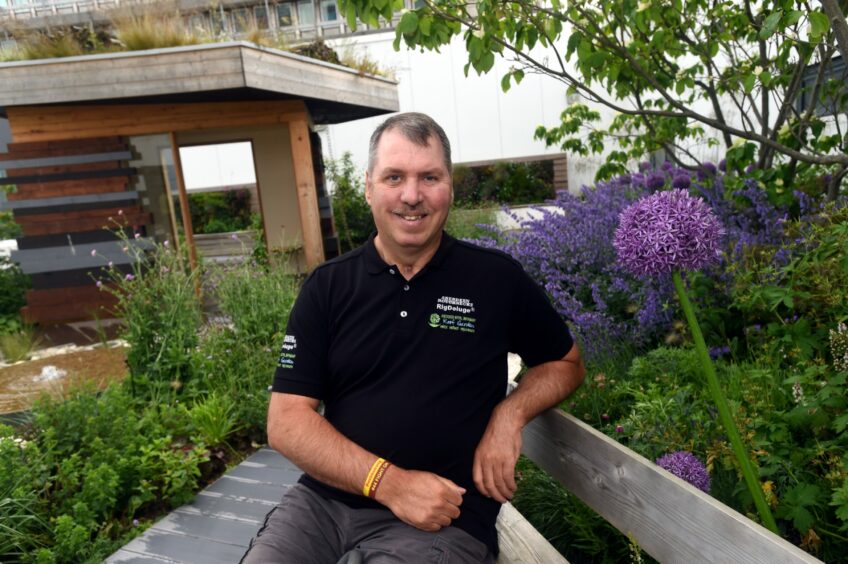
Paul Breen has never forgotten how his his life changed forever as he was driving a train from Queen Street in Glasgow 13 years ago.
One moment, he felt fine, the next it was as if “a rush of water was running up the back” of his head.
As his colleagues realised he was suffering a potentially fatal seizure, he was transferred to a waiting ambulance which took him to Glasgow Royal Infirmary.
Paul, who is from Aberdeen, said: “I don’t remember a thing after that, but I learned later I spent five weeks in three different hospitals, being cared for every step of the way by National Health Service staff before being transferred to Aberdeen Royal Infirmary.
“Then I spent months in ARI getting stronger, but a scan subsequently showed there was a build-up of pressure in my brain again, so I was operated on by Mr [Mahmoud] Kamel where they found it was a brain aneurysm.
‘They didn’t expect me to last the night’
“Although I remember going for one operation, I apparently had 14. On four separate occasions, my wife was asked to come in and they didn’t expect me to last the night.”
These were dark times for Paul and Liz and their sons, Chris and Sean, yet, in the midst of all their fears and privations, they never doubted the quality of care they received throughout his fraught journey.
And, even though he eventually spent two years in hospital, and had to undergo substantial rehabilitation, Paul’s story is far from unique.
That is why so many people feel passionate and protective about the NHS, which celebrates its 75th birthday on July 5 with question marks surrounding its future.
The Press & Journal has heard from many people in recent weeks about how dedicated staff have brought loved ones back from the precipice time and time again.
One woman, from Orkney, recalled how doctors and nurses worked tirelessly to save her mother, who collapsed with a heart attack in a supermarket.
She said: “The response was amazing and mum wouldn’t be alive without all their efforts.”
Another woman, from Elgin, related how she was diagnosed with a brain tumour and feared the worst, but as she said: “I’m now in remission. And the quality of care and the positivity and professionalism of those who have looked after me was wonderful.”
Service has been ‘life-enhancing’
Retired Aberdeen GP, Ken Lawton, has watched the service grapple with pitfalls and problems for most of his career and marvelled at the resilience of those on the front line.
An ardent advocate of the original NHS principle of patients being treated free at point of entry, he almost feels it has been a victim of its own success with people living longer and new drugs being developed to tackle previously terminal conditions.
But, as to whether it can survive in its present form, without massive investment and a more consensus-driven, cross-party approach to its future, he is less confident.
He told me: “There have been so many breakthroughs since the NHS came into being that it has sparked a revolution and it has been life-enhancing in many respects.
“At the outset, it was just X-rays, but now we have digital scanners, MRI machines, all sorts of new technology which are life-prolonging, including stents, dialysis and a wide range of new drugs, but the worrying thing is that we also have the perfect storm of an ageing population and a diminishing workforce to look after them.
“Back in 1948, there also wasn’t much focus on mental health, but that has completely changed and it has brought a whole new range of issues. And the pandemic was the last thing anybody needed when resources were already being stretched so much.
This shouldn’t be about party politics
“I’m hearing colleagues increasingly discuss such questions as: ‘Can the NHS continue to be a completely universal service? ‘Or should it only provide core services? – and then, what would these be if we headed down that route?
“I think one of the things which would really help is if we took the politics out of health. Illness doesn’t have a party rosette. Whatever party you vote for, it won’t stop you from getting sick or needing to see a doctor or go into hospital at some stage of your life.
“The NHS is not in an impossible position – not yet – but it needs urgent attention and grown-up responses rather than continually being used as a political football. Stop all the arguments over who’s doing better or worse in Scotland or England, because this is about saving lives and helping preserve something precious”.
‘Cancer diagnosis can be devastating’
In 2018, north-east businessman Kenny Anderson had just completed a three-year period as chairman of Clan Cancer Support. He was walking his black Labrador Ginny up Brimmond Hill [near Westhill] when he heard a BBC news report about prostate cancer and the importance of more men getting themselves checked out.
So he did. And he told me this week how it had both saved him and demonstrated the fashion in which the NHS still offers a comprehensive package for those who require it.
He said: “I was due a routine blood check and a new nurse at Skene Medical Group agreed to add a PSA blood test without the normal referral.
“A few days later, I was asked to see my GP and my PSA was marginally elevated so he carried out an ‘examination’. He found the prostate to be normal, but explained he could only assess half the prostate and therefore, with my family history, recommended a referral to the ARI Urology Department.
“Within a couple of weeks, I was at Ward 209 at ARI where the excellent staff explained that a biopsy was the way to thoroughly check my prostate.
“Less than a week after the biopsy, I was called in to meet a consultant, I had hoped it was nothing serious, but on checking the consultant’s credentials, I realised it must be. When a cancer diagnosis is delivered, it is devastating and this was exactly that.”
The NHS is nothing short of amazing
“However, the consultant explained his recommendation which was robotic removal of the prostate, a prostatectomy. I listened intently to every word and then sat with a Ucan Specialist Nurse who explained the potential side effects.
“The operation went ahead, I was in at 7am on a Tuesday, greeted by science-fiction-type equipment in the operating theatre and a dozen medical experts. I was operated on for four hours that day and discharged the next afternoon.
“Six days later, I had the catheter removed and a urination test that I passed. In the following three weeks, I followed every instruction to the letter.
“Then, in January 2019, I met the consultant who advised that the prostatectomy had been successful and the cancer had not escaped from the prostate.
“At the end of January, six weeks after the operation, my GP and the consultant agreed that I could ski for seven days with friends in the French Alps.
“My family, my friends and my dog Ginny were crucial in my recovery, but the NHS at every stage from Skene Medical Group to every person I encountered at ARI Ward 209 Urology and Ucan were nothing short of amazing.”
Praise for the NHS
Not everybody enjoys a happy outcome, but it’s never for lack of commitment. In which circumstances, it’s hardly surprising that people such as Paul Breen, who has helped raise funds for a roof garden at ARI, has nothing but praise for the service.
He said: “I finally turned the corner and have never looked back thanks to the skill, great care and kindness of the vast army of NHS staff who looked after me, morning, day and night for two years in total.
“Words cannot express how grateful I am for everything they all did for me while getting me well enough to go back home once again.
“Many of the staff kept in touch during my recovery, so I did a charity walk for a proposed staff garden at ARI and I was joined by some of the physiotherapists and nurses who had looked after me.”
Paul is not a sentimentalist. But he was visibly moved by talking about his experiences. And his happy 75th birthday to the NHS was heartfelt and genuine.
